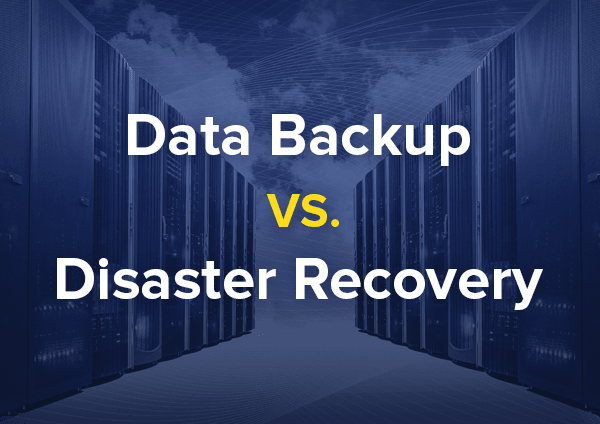
A Detailed Comparison between Colocation and Cloud Computing
January 14, 2020
Backup and Disaster Recovery Explained
January 16, 2020According to the latest research of 2019 everyday hackers attack about 50,000 websites. Taking into account that every business today maintains an online presence, the situation is disturbing.
And if you think your small business is secure, keep in mind that almost 43% of attackers choose to hack small and medium enterprises. Thus, you can’t say it is not your concern. Because it is.
So what can be done to prevent your data from being stolen? At least acknowledge that you are not safe. And adjust your security measures. Five good tips on how to achieve this are described in the article below.
Regular Backups
The basis of cybersecurity is to always have a “plan B”. In case something goes wrong, in the worst-case scenario, you can restore your website in a click by using backups.
To cut a long story short – be prepared. You can become a target of attack at any moment. Sad but true. All you can do here is to survive that with minimum casualties. Regular backup is a measure that will aid you in securing all the information you possess.

A good backup includes all the site components, which are:
- critical data;
- essential files
- main themes;
- basic plugins;
- at least all the main databases
If something goes wrong your backup will help you to restore the “clean” version of your website. Do not neglect this measure, it is an easy and safe way to rebuild your business in the shortest terms.
Ongoing Surveillance
Being a website owner you probably won’t be able to see if someone is preparing for the attack. Viruses are elusive, while social engineering progresses daily, so you won’t get that you are communicating with the con artist.

Never-ending monitoring will help you to identify the activities that can be a premise to attack. Track at least the basic things. If the attack is being prepared, you might see one or several of them.
Repeated freezes and crashes of your website;
- Some of your website files were deleted without your approval by literally no one;
- You note random increases and decreases in your website’s traffic;
- One of your users did not perform a login, but somehow it was performed;
- Search engines start to indicate your website with warnings on harmful content;
- If you see something of the mentioned above, your website might be compromised and injected with malware.
Ongoing monitoring doesn’t mean you have to hire human specialists to work 24/7. Today there are plenty of automated security scanners that will help you to defend your website. Do not neglect them.
Use HTTPS
It doesn’t matter if you are running a bank or a commercial blog. You must use the HTTPS protocol for your website. It is one of the most secure ways of communication between a server and a client.
What HTTPS is good for? This kind of security does not allow hackers to gain access to your source code and to modify your website. It is one of the most popular ways of attack – to modify the code and to start gathering all the data available, including bank info, logins, and passwords.
Besides, popular browsers identify non-HTTPS based websites and inform the visitors that communication is not 100% safe. And this notification can drive people off your website, resulting in decreasing the number of people visiting your page.
So, in general, it is a great way to increase the overall security of your business. By the way, search engines prefer to show HTTPS websites higher in search results.
Password and Access Management
It is a wise matter of security to limit the access rights of your employees. Provide your people with access only to the data which is necessary to fulfill their job. It is not about trusting your people, but they may do damage even if they don’t want to.
The same thing with passwords – 25% of passwords people create can be cracked in less than five seconds. And it is actually easier than you might think. The Internet is full of different tools for breaking passwords.
To make sure your passwords are safe, change them on a regular basis. Also, the password should be complex, consisting of digits, letters, and characters. If your employees complain about how hard it is to keep all those passwords in mind, think of using a good password manager tool.
Finally, as a business owner, you should work only with the hosting services using at least two-factor authentication. It will provide you with an extra security layer. For example, use additional digital code before providing access for a user.
Personal Devices
You can think of almost anything on your website, but you’ll definitely forget about one weak point. Your own smartphone can betray you these days. Hacker can infiltrate your laptop you are preferring to work from and use it to steal whatever data possible. Including your personal login and password for your so-much-protected website.
What can you do with that? To begin with, stop using your personal devices for work. Install trustworthy antivirus software and antimalware tool. It will help you not to get random malware from a USB inserted into your device – sometimes even without being aware of it.
And try not to ignore firewalls. Make their rules as strict as possible.
**********
One 100% true way to provide impenetrable security to your website is to cut your Internet-cable, disable Wi-Fi and stop any kind of Internet access. The viruses are being upgraded every day. Cybercriminals invent new ways of attack every week. And all you can do today is to stay alert.
You can use all the wisest security measures, but in our world, you’ll never be 100% safe. However, it is not a reason for total paranoia. To know about the threat is to be prepared for it. That’s our main advice – be prepared and stay safe.
Got some ideas on how to make your website safe? Feel free to share them with everyone in the most convenient way. Good luck!
